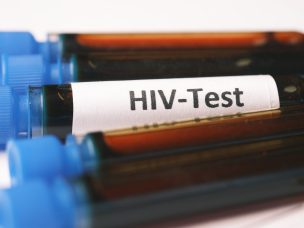Immunology
How Race and Socioeconomic Status Impact Food Allergy Disparities
Food allergies disproportionately impact low-income, non-White families for a wide variety of complex, intersectional reasons. The presence of food allergies is increasingly common in children and is associated with a significant financial and psychological burden on pediatric patients and their families. The increasing trend of allergies has been pervasive for all children, but the impact...
Addressing HIV Disparities in the South by Partnering With Barbershops
By engaging with the barbershop community, researchers aim to destigmatize HIV care services and improve HIV prevention in a trusted and culturally relevant setting. About 1.1 million people are living with HIV in the United States. After years of decline in the number of new HIV cases, that trend has slowed, with the number of...
COVID-19’s Impact on HIV Behavior Among Gay and Bisexual Men
This study on gay and bisexual men in Australia shows that while COVID-19 outbreak-related measures led to fewer sexual partners, there was a decline in condom and pre-exposure prophylaxis use. COVID-19 has not just caused significant mortality, but it has also disrupted the healthcare system, including the delivery of care for existing conditions like HIV,...
Youth HIV Disparities: Transgender vs. Cisgender
This investigation delved into the disparities in HIV prevalence and prevention among transgender individuals in the United States. While transgender youth showed higher rates of HIV testing, they were less likely to receive HIV education and use condoms compared to their non-transgender peers. HIV in the United States disproportionately affects transgender individuals. A recent report...
One in 7 Americans Has Had Long COVID
Key Takeaways An estimated one-third of people who have COVID-19 could wind up with long-term COVID symptoms, a new study says Nearly half of Americans have had COVID-19, and 1 in 7 have gone on to suffer long COVID Symptoms associated with long COVID include brain fog, anxiety, depression and mobility problems As many as...
Therapy Abandonment Among HIV/AIDS Patients During the COVID-19 Pandemic
This case–control study conducted in Brazil strived to identify the factors linked to antiretroviral therapy abandonment among adolescents and young individuals living with HIV/AIDS during the COVID-19 pandemic. In late 2019, the city of Wuhan, China, witnessed the initial transmission of the SARS-CoV-2 virus, leading to Severe Acute Respiratory Syndrome 2, now commonly known as...
Acute HIV Infection Transmission Patterns in a Dutch Cohort Study
In a study published by the National Library of Medicine, it was found that rapid diagnosis of HIV is crucial for halting transmission from acutely infected individuals. In the world of HIV prevention, identifying and understanding acute or early HIV infection (AEHI) is crucial for interrupting transmission chains. Knowledge about secondary infections resulting from individuals...
Severe Mpox Infection in Advanced HIV: A Global Case Series
This study investigates the intricate relationship between HIV infection and mpox, a critical area where existing literature shows disparities in severity. The goal of the study, published in The Lancet, was to examine clinical characteristics and outcomes of mpox in individuals living with HIV and low CD4 cell counts, specifically those with CD4 counts below...
HIV Transmission Risk: Implications of Low-Level Viremia on Sexual Transmission
This study was a systematic review of evidence related to sexual transmission of HIV at varying viral load levels among serodiscordant couples. The results showed a nearly zero risk of sexual transmission of HIV when the partner living with HIV has a viral load of less than 1000 copies per mL. A new study published...
More Medical News














